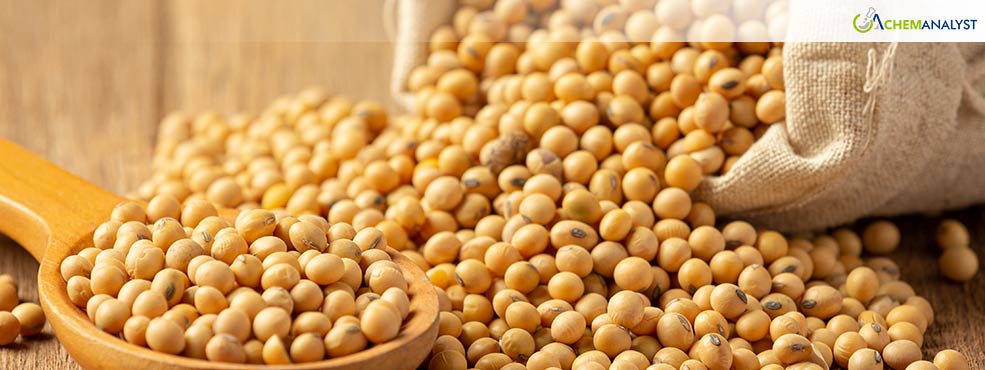Welcome To ChemAnalyst

The Chicago Board of Trade (CBOT) witnessed a modest increase in soybean futures prices on Thursday, driven by growing concerns over potential production disruptions in South America due to unfavorable weather conditions. However, this upward momentum was tempered by the news that China had suspended soybean shipments from five Brazilian firms due to their failure to meet stringent plant health requirements.
This development, coupled with ongoing trade tensions between the United States and several key trading partners, including China and Canada, injected a note of caution into the market. U.S. President Donald Trump's threat of imposing tariffs on European Union imports and a potential 10% duty on Chinese imports further exacerbated these concerns.
While soybeans experienced a slight uptick, corn and wheat futures eased marginally, influenced by a technical correction and a general air of uncertainty surrounding the evolving global trade landscape.
Market Dynamics:
• Soybeans: The primary driver behind the modest price increase was the growing apprehension regarding the impact of adverse weather conditions, particularly drought in Argentina, on South American soybean production. This concern, coupled with downward revisions in U.S. corn and soybean production estimates for 2024, has been a significant factor in bolstering soybean prices in recent weeks. However, the Chinese government's decision to halt shipments from five Brazilian firms injected a degree of volatility into the market, limiting the extent of price gains.
• Corn: Corn futures experienced a slight decline, primarily attributed to profit-taking by traders and a general air of caution stemming from the escalating trade tensions between the U.S. and its key trading partners. The potential imposition of tariffs on various imports, including those from China and Canada, has raised concerns about the potential impact on global trade flows and agricultural commodity markets.
• Wheat: Similar to corn, wheat futures also experienced a modest decline, largely influenced by a technical correction and the prevailing uncertainty surrounding the evolving trade landscape.
Global Demand and Trade:
• Strong Global Demand: Despite the prevailing uncertainties, global demand for key agricultural commodities remained robust. Several countries, including Algeria, Jordan, South Korea, and Thailand, issued tenders for significant volumes of corn, soybeans, and wheat, indicating continued strong demand for these essential commodities.
• Fund Flows: Commodity funds played a significant role in shaping market dynamics. Traders reported that funds were net sellers of CBOT corn, soybean, soyoil, and wheat futures contracts on Wednesday, while exhibiting net buying activity in soymeal futures contracts.
The soybean market displayed a mixed performance on Thursday, with prices edging higher amidst concerns over South American production but facing headwinds from the suspension of Brazilian shipments by China. The broader market was also impacted by the escalating trade tensions between the U.S. and its key trading partners, creating an environment of uncertainty and volatility.
We use cookies to deliver the best possible experience on our website. To learn more, visit our Privacy Policy. By continuing to use this site or by closing this box, you consent to our use of cookies. More info.
